1. The Tipping Economy
Sometimes, it just takes an outsider to point out the true uniqueness of our behavior or actions. Sure, Americans like to go big, whether it's the extra large size four sodas, to the amount we tip-these are cultural quirks that will probably catch any first-time visitors to the United States by surprise. In many other ways, we're also more modest. For example, who knew our currency was so dull in comparison to other places?
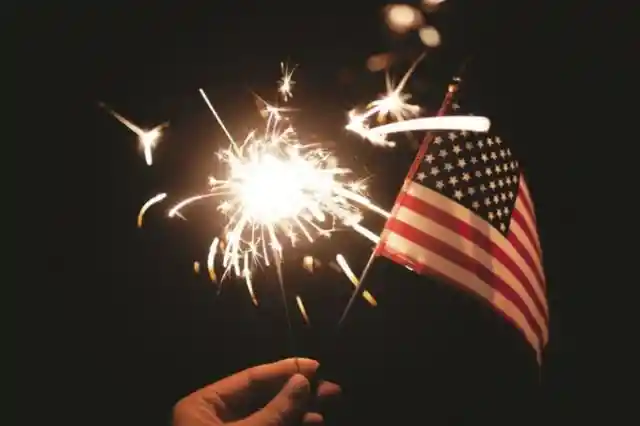
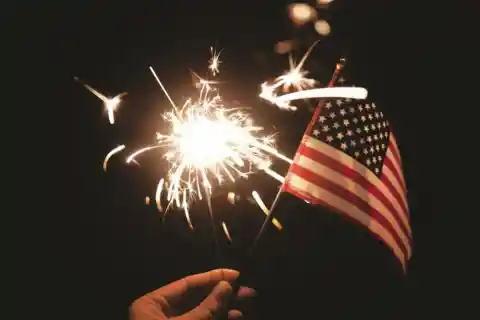
It's too easy to believe that the way we do things is how it is for everyone. Unfortunately, that's not the case at all. Here are some things that strike non-American people as very, very odd. Prepare to view your life in an entirely different light.
In the United States, if you can't afford to tip your server, it's recommended that you don't go out to eat at all. However, the ideas in Europe are quite the opposite. You're not supposed to tip servers whatsoever.
2. Backward Date Format
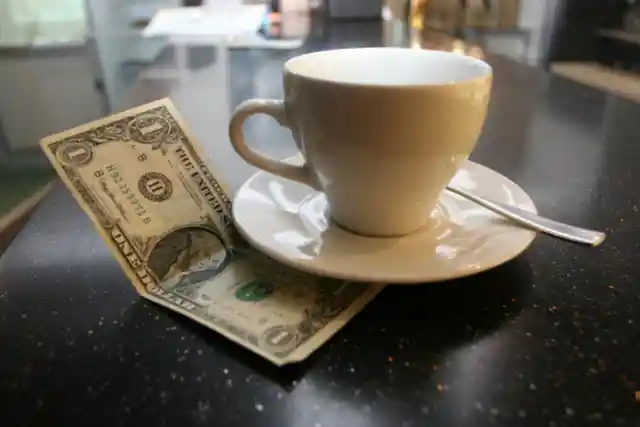
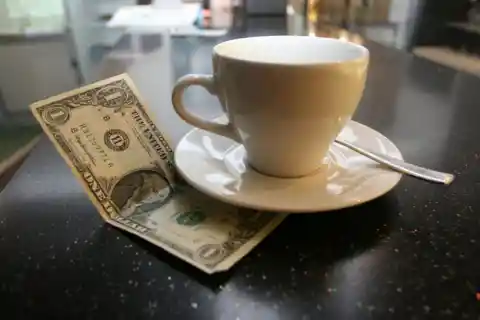
The French have a helpful phrase to remind American visitors that they don't need to tip, "Le service best comprise", meaning the tip is included in the price. How do the servers live you ask? Simple, they just pay their servers a living wage in the first place.
In most places around the world, the date is formatted DD//MM/YYYY. However, America seems to have a different idea in mind when it comes to how the date should be written.
3. Early Dinners
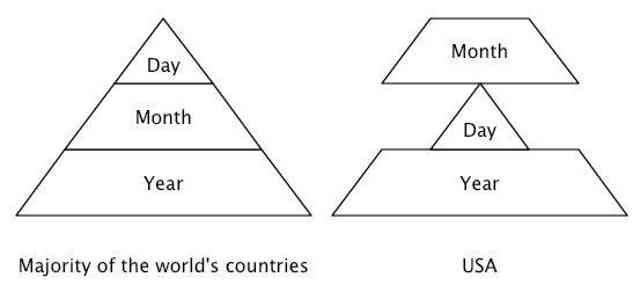
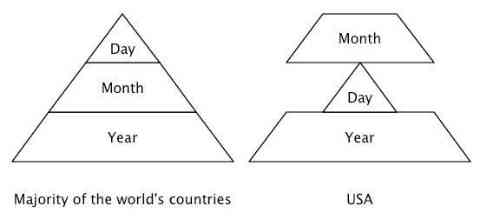
Americans write the date with the month listed first instead of the day. Why America is the only one, we're not exactly sure.
In the United States, many people sit down for dinner around 6 or 6:30, but again, Europeans do things differently. It's not unusual for Europeans to eat the final meal of the day at 9 p.m or later.
4. Star-Spangled Everything


It seems that Americans are the only ones who have a problem with going to bed on a full stomach.
It's no secret that Americans are very proud people. Americans would probably cover everything in American flags if they could. I mean there's American flags on coffee mugs, bumper stickers, T-shirts, face paint, and etc.
5. Rarely Take Vacation


This comes off a bit strange to visitors from other nations. For others, they believe that the flag belongs on a flagpole, and that's pretty much it.
In many countries outside the U.S., vacation is a much enjoyed and esteemed way to spend a few weeks or (even months) out of the year. It's very celebrated and never questioned.
6. Shop At Pharmacies


In the U.S., taking time off is often treated as a dirty secret, or is something done grudgingly, and we often let our vacation days pile up as the months of 50-hour workweeks roll on. Being a workaholic is completely bizarre to many people outside the U.S.
In England, the "chemist" is the place you go for medicine and medical supples, and that's it. In the U.S., pharmacies are basically convenient stores, and they have aisles of candy and soda that with counteract mostly all of the "health" boosting things we go there for in the first place. For example, at many pharmacies in New York City, you can buy things like sushi.
7. Ads For Legal Services


Jon Langford who wrote for BBC, writes that, "In America, pharmacies are huge, kid-friendly places with shelves stacked full of crappy plastic toys and just about every conceivable candy bar. It is not a place little ones fear; on the contrary, a trip to Rite Aid is met from the backseat with a whoop or two of delight." To be honest, he's right.
Lawyers are as common in America as apple pie, and advertising for it is about as common as the vanilla ice cream on the side. Many nations don't allow their lawyers to advertise on television or billboards. They believe that people should only seek out legal help if they need it.
8. Sales Tax Surprise


In the U.S,if you can convince someone to give you money for basically anything, then you have free reign to do so. This includes lawyers.
If you have lived in the United States your entire life, then this factoid will most likely blow your mind. In other countries, retailers figure out the sales tax and add it on to the item's price tag. As you know, here in the U.S you don't really know what the total price is that you will be paying until you get up to the register.
9. Litigious Culture
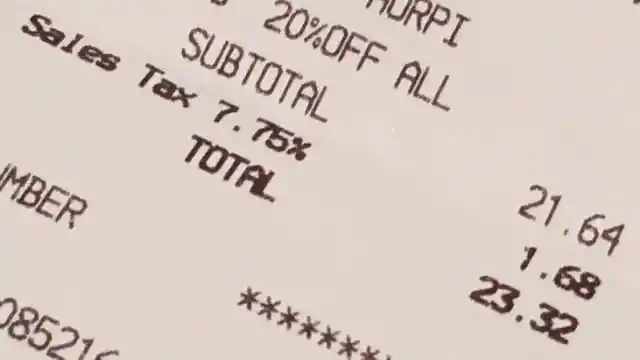
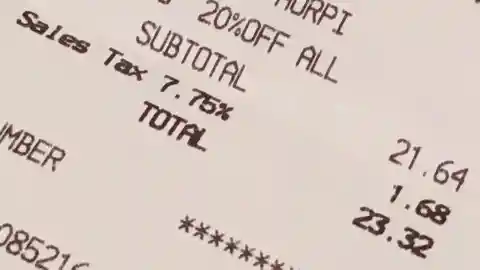
Imagine how confusing it would be if you're from a country where price tags are completely accurate, and then you come to America. In our opinion, this is probably something we should pick up from our neighbors.
Americans put warning signs and labels on basically everything. Got a coffee? "Be careful! It's hot!" Those Scissors? "They cut things!
10. Loud and Proud
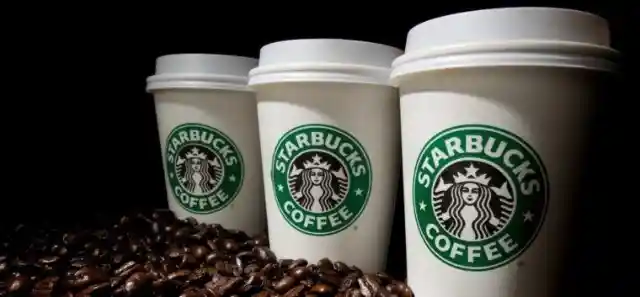
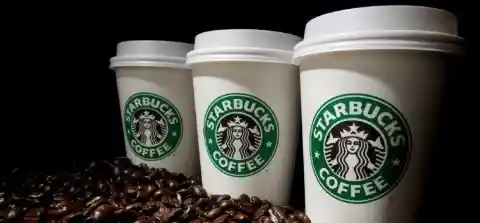
It makes sense for American companies to cover up their bases with a large amount of warning labels. Why? Well after all, our lawyers advertise aggressively. America is a very litigious culture, and warning protect businesses from lawsuits. This doesn't really sound ideal to people in other countries.
The stereotype that other nations believe about Americans is that we're all loud, talkative, and extremely extroverted. They believe we'll ask about your personal life, and invade your personal space. There's some truth in this stereotype, it could be because we have so much space, we only yell across rooms.
11. College Sports As Professional Entertainment.


Perhaps it's because of the value we put on being friendly; even ending a text with a period instead of an exclamation point borders rude these days. For whatever reason, people in other countries tell us we speak loudly. Are they right?
If you were to ask a British person if they'd watch a university soccer match, they would probably scoff and say, "Why would we? It's just students having a laugh." If you then talk to your average American Notre Dame football fan, you would probably get an extremely different response.
12. Free Refills (If There's Corn Syrup Involved)


Here in the U.S, we've built college sports up to be considered professional entertainment. It seems we're unique in this belief.
Health advocates in the United States have raised concern about drinks that are loaded with sugar. Fortunately, we live in a culture of the free refill.
13. Supersize It All
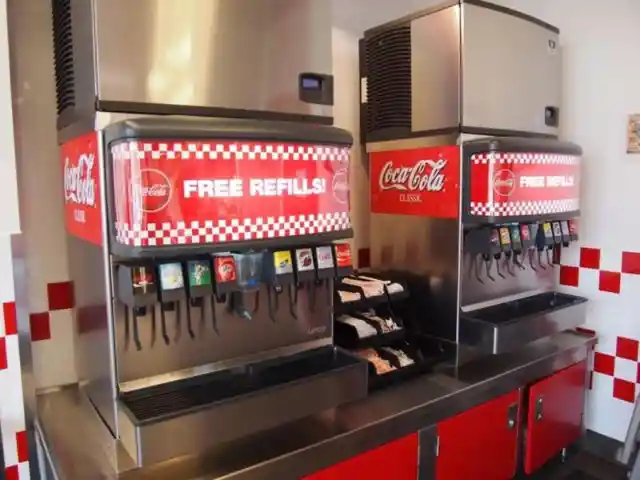
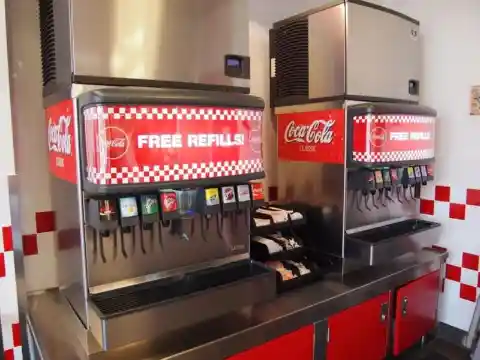
People are confused by the dissonance in opinions sold by different companies. If it is known that drinking three gallons of soda a day can lead to adverse health outcomes, then why make sugary drinks so cheap and easily accessible?
Along the same lines, restaurants in the United States seem to offer much larger portion sizes than those in other countries. We suspect this suspect behind this is the hand of the market.
14. Pickle Applications
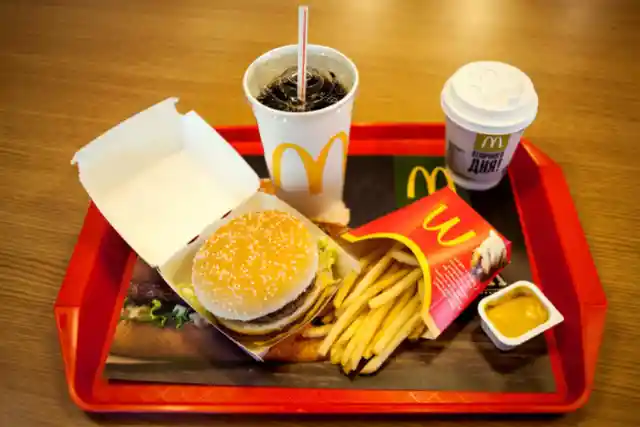
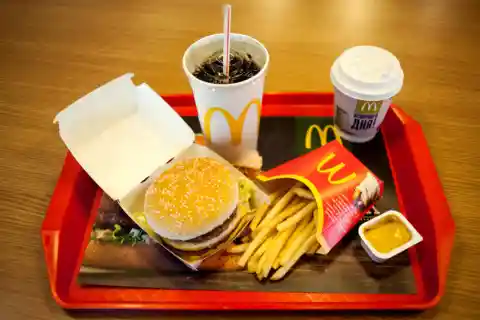
How do you compete with other places on the block? Simple, offer more food for a similar cost Nations with less devotion to capitalism never had a 'portion size war', and so they offer more manageable meals.
The United States isn't much of a world-leader when it comes to pickle eating. The Italians have giardiniera, Indians pickle their mangoes, and South Korea has kimchi. However, it seems that Americans seem to treat pickled cucumbers a bit differently than other places. We slice them, and put them on everything.
15. Pledge of Allegiance
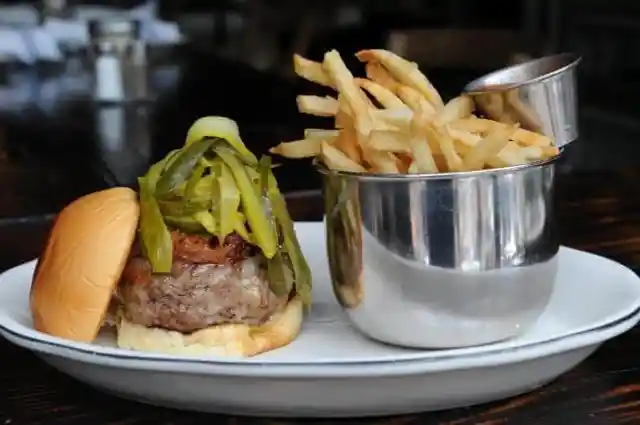
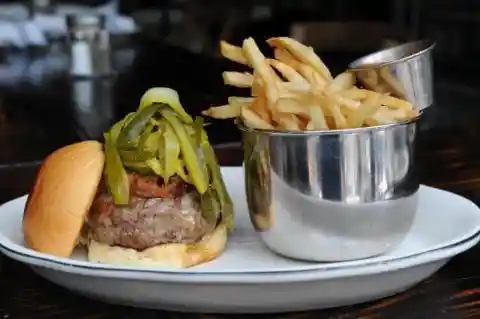
We put them on hamburgers, sandwiches, and even some pizza. We all enjoy the extra zing from a few pickle slices. As good as it is, it seems as though that is also only an American thing.
There's been a bunch of controversy over the Indian government's decision to prosecute citizens for sitting through the nation's national anthem-which is a mandatory part of every movie shown in a public movie theatre. It can be argued that in a way, it's not so different than how Americans treat their school children.
16. National Bathroom Design


We make them stand, put their hand on their hearts, and pledge their allegiance to the flag every day. Although they may not get arrested for sitting out, but they're still bound to get in trouble if they refuse to do it.
When it comes to public restrooms, Americans can't really win this one. People from some countries point out that squatting toilets are actually much better for you than sitting on the 'Western throne.' Other Westerners claim that our design lacks privacy.
17. Slang Doesn't Translate
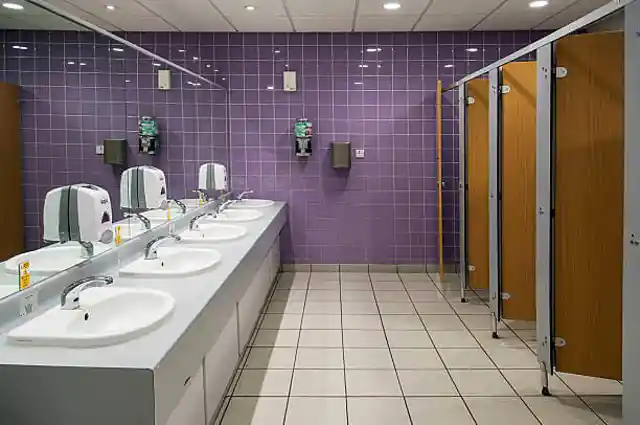

So it seems we're catching it from both sides.
Every nations has it's own slang and colloquialisms. America is no different, and if anything we excel at novel uses of language that confuses the heck out of non-native English speakers.
18. "Easy Cheese"


For example, try asking a non-native English speaker if they want to "hang out", they will probably be very confused. Also, when it comes to the complexities of our texting abbreviations, a new English speaker doesn't stand a chance.
France is well known for it's variety of fine artisan cheeses, they love indulge in a creamy Brie or Camembert. However, we have........liquid cheese?
19. Sweets
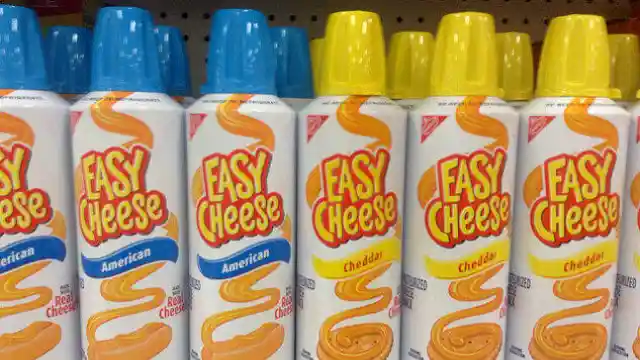

People in other countries don't really understand why we would put liquefied processed cheese-food product into a hairspray can. Unless.....they decide to try it?
The American palate is famous for preferring sweet flavors. We basically put sugar in bread, and corn syrup in our beverages.
20. Water Usage
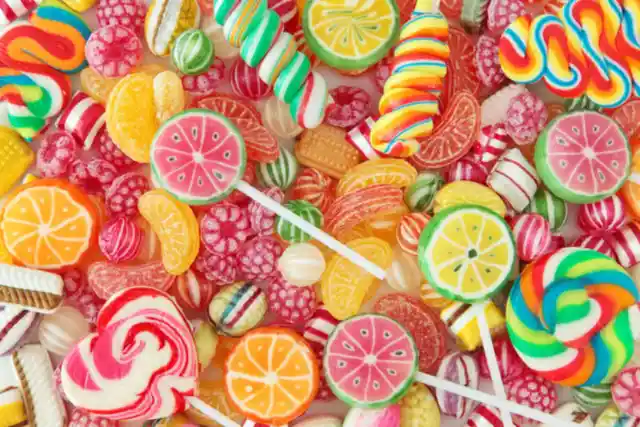

There really isn't any type of food that we haven't tried to sweeten up. For example, have you tried glazed carrots?
When people in other countries hear about the Western flush toilets they probably ask, "you do that to clean water? Why?" Well, the answer for is Americans is probably just, "because we can." And also, although it feels cleaner and more convenient, people overseas claim that Americans waste more water than people in other nations. For example, many people leave the water running while they brush their teeth.
21. Refrigerating Butter


This is a big NO! We should probably start working on that reputation of ours.
In the United States, we like our butter hardened and cold, and this is extremely weird to people around the world. Guess where other people keep their butter? On the table in a butter dish.


It makes sense when you think about it. The butter stays room temperature, and you can spread it on bread without a handful of crumbs, but according to us, our butter's staying in the fridge probably forever.